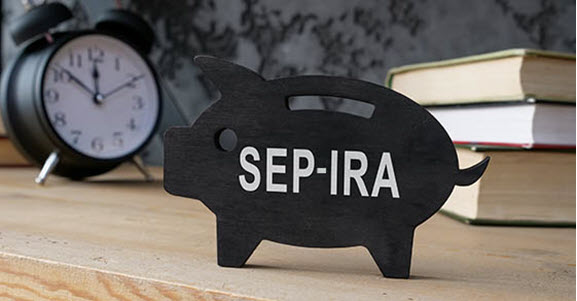Are You Ready To Buy A Dental Practice?
You’ve taken the time to refine your clinical skills since dental school graduation. You’ve registered with the top regional dental practice brokers. You’ve asked for help from anyone who might be able to help you locate an existing practice to buy, including practice brokers, dental equipment sales and repair representatives and your peers.
Now, what appears to be the ideal dental practice to buy presents itself. But is it an ideal practice? Most importantly, is it an ideal practice for you? Is it a growing practice or one on the decline?
Before you throw up your arms and scream for help, here are some steps to take to ensure success.
The First Thing To Do Is To Build Your Advisory Team Quickly.
An even better idea is to compile a team of dental-specific professionals even before you find that ideal practice to be better prepared to outpace a competing suitor. Having a dental-specific CPA and a dental-specific attorney is half the battle of completing a successful practice acquisition. In addition, securing a dental-specific loan specialist at a bank will also give you an advantage.
The Most Vital Step In A Dental Practice Acquisition Is The Due Diligence Process.
Verifying the accuracy of the representations of the practice seller and the broker and evaluating the true value of the practice to you as the buyer is crucial. A CPA specializing in dental practices can be a huge asset in evaluating the merits of the contemplated practice and forecasting your success in that office as its new practice owner.
Though the merits of the practice can and should be discussed with the Dental CPA prior to making an offer, we recommend that you begin the due diligence step once a Non-Binding Letter of Intent is signed. By this time, you should have already visited the office, met with the practice owner, and arrived at the basic terms of the sale, including the purchase price and a mutually workable closing date timeframe. Often, the office staff is unaware that the dental practice is for sale, so confidentiality and discretion in discussions with third parties are imperative.
When performing due diligence on a dental practice acquisition, what top items do we look at?
Practice Collections
Show me the money!
Some due diligence procedures should include reviewing dental practice tax returns filed for the last three to four years. Additional steps should also include reviewing bank statements and comparing deposits for the year to the tax returns and financial statements provided, keeping an eye out for unusual non-recurring deposits and items.
Practice Expenses
Mind the store!
What does this practice cost to operate, and what can you reasonably expect to earn? Certain costs are variable, and certain expenses are fixed. Focus on analyzing the costs that will be difficult to manage. An expensive lease can hinder profitability, locking the practice for a fixed term. A bad lease might be a non-starter and kill the deal before further acquisition efforts are made. Employee costs can easily become overwhelming in a long-held practice. Be mindful of hourly wages or salaries and employee benefits. What the seller might be able to afford to pay staff may not be what a new practice owner can afford, along with a bank note to pay. Employees do not take kindly to a reduction of pay or benefits in a transition. You’re not looking for a mutiny on Day One!
Remaining Terms of The Office Lease
Pack your bags!
How many years remain on the lease? Do you feel like moving next year? If there are less than three years remaining on the lease or a new lease can’t be negotiated prior to closing, you may need to pass on this practice. Typically, the banks will not lend with insufficient lease terms. Check all terms of the lease and the afforded rights for it to be
assigned to an acquiring practice owner.
Insurance Plans are Accepted, and Office Fee Schedules
$50 cleaning? I don’t think so!
Don’t laugh. We have seen it. It is very important to review the insurance plans accepted. When a hygienist can cost more than $60 per hour with payroll taxes and benefits, make sure you’re not losing money with every patient you see. A careful review of the fee schedules for the accepted top three plans should be performed. Many older dentists fear dropping certain underpaying plans and have continued to build a larger patient base on sub-par paying plans, even as other local providers have dropped the plans.
Associate Contracts
Whose goodwill are you buying?
When a practice employs a dental associate, the patient-doctor relationship sometimes transfers to the dental associate. A review of the associate’s employment contract is vital to protect the asset you are purchasing. Be aware that in the absence of a non-compete agreement between the associate and the practice, nothing can prevent the associate from opening nearby and taking the patients from the practice you want to purchase.
Procedures Currently Performed In-Office and Procedures Referred Out
Opportunities lost or found?
A careful review of the production report by the procedure is crucial in determining if you have discovered a huge opportunity or are purchasing a practice you can’t or choose not to replicate. In other words, if you are not comfortable placing implants and the practice’s collections include a large percentage of implant placement cases, this may not be the practice for you. Immediately, there will be a reduction in collections. Conversely, if the practice is not currently placing implants or refers out all endodontic work and you are skilled at such procedures, you have just discovered a huge opportunity to grow the practice.
As a CPA firm specializing in the dental industry, our dental accountants are skilled at guiding our clients to successful practice acquisitions. Equally as important, we continue to provide industry-specific accounting guidance post-transaction to set our clients up for a rewarding ownership experience. Often referred to as “New Jersey’s most trusted dental accountants,” we strive and succeed to live up to our stellar reputation continuously.






